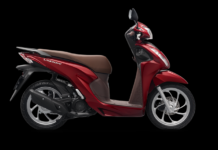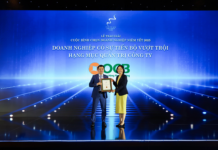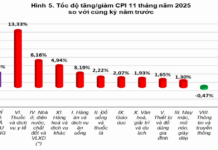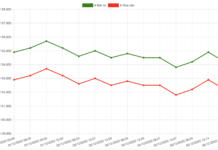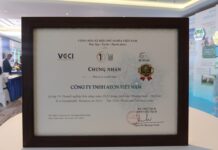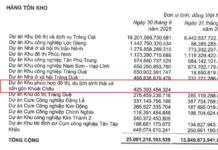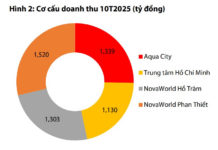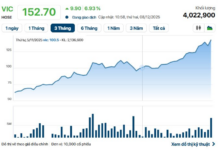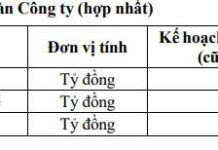In the latest episode of Shark Tank Vietnam season 7, Vo Kim Vinh, an 18-year-old student studying in the US, pitched his business, Double C, to the sharks. With a requested investment of 5 billion VND in exchange for 12.5% of the company’s shares, Kim Vinh aimed to develop Double C into a popular rice dish brand among young people, office workers, and foreigners.
Noticing a lack of Vietnamese restaurant brands in the US, Kim Vinh, along with his two co-founders, established Double C as a fast-casual chain, modernizing Vietnamese cuisine while offering a more convenient dining experience than traditional fast food.
Underutilizing a Prime Location Near Nguyen Hue Walking Street
Double C offers rice and baguette dishes starting at 20,000 VND and 15,000 VND, respectively. Customers can choose additional toppings such as pork chops, pork belly, sausage, and salad, with packages ranging from 60,000 VND for 5 toppings to 70,000 VND for 8 toppings. The ingredients used are sourced from sustainable agriculture and are traceable, packaged in eco-friendly materials like sugarcane boxes, aluminum lids, and wooden or bamboo cutlery.
Currently, Double C has opened its first branch near Nguyen Hue Walking Street in District 1, Ho Chi Minh City, surrounded by office buildings. By 2026, Kim Vinh aims to expand to 10 stores, including 8 branches in Vietnam and 2 overseas.
Based on the experience with the first branch, Kim Vinh shared that the investment cost for a Double C restaurant is 1 billion VND, with a staff of 3 employees. The current branch sells 40-50 meals a day during the 3-hour lunch period, with prices ranging from 30,000 to 120,000 VND per meal. The 18-year-old founder admitted that Double C is not fully utilizing its prime location.
“If we expand, implement marketing strategies, and increase our brand value, serving breakfast, lunch, and dinner, our sales could triple or quadruple given our proximity to the walking street,” Kim Vinh confidently stated.
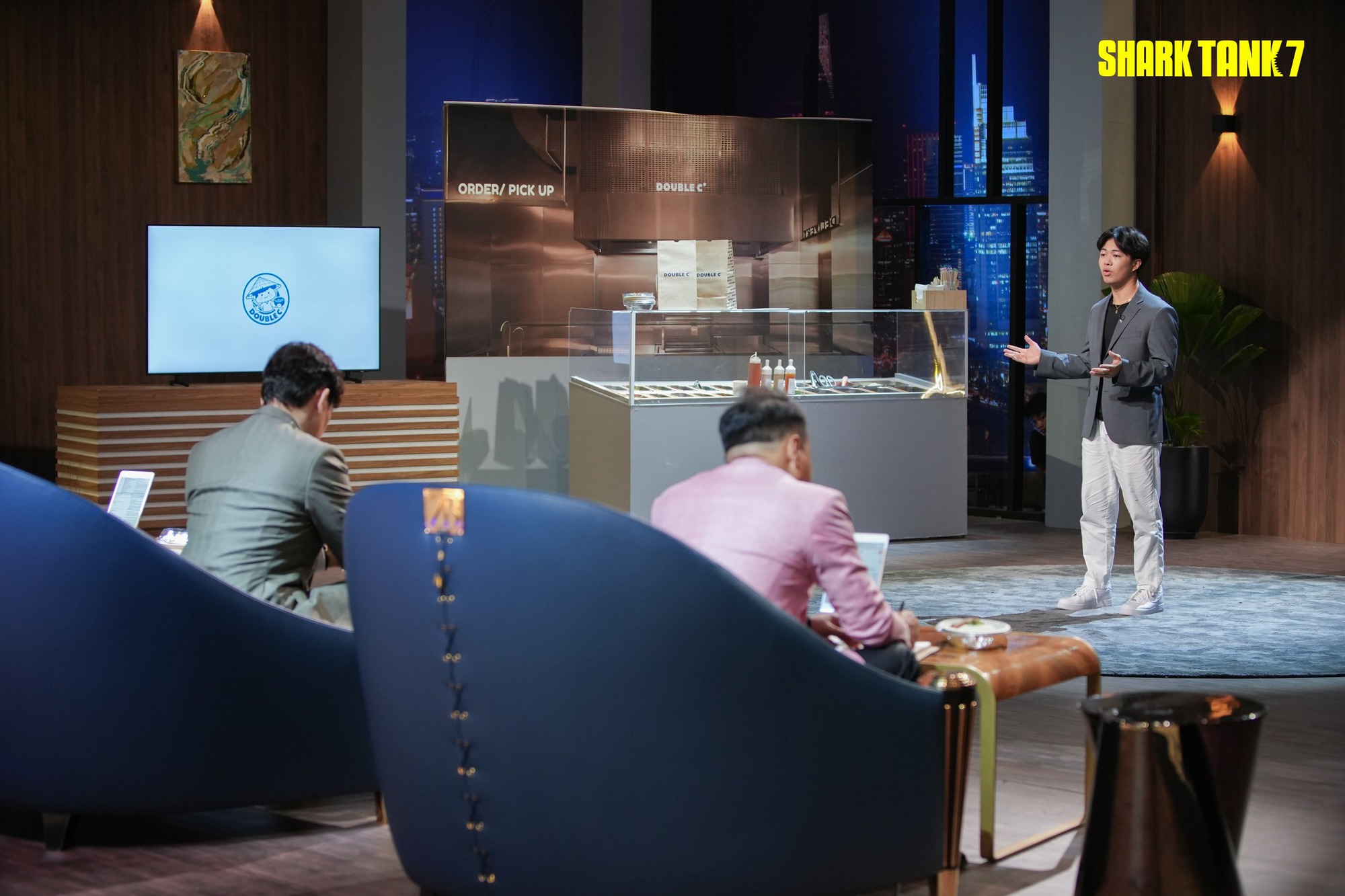
Shark Nguyen Van Thai pointed out that several hundred meals would need to be sold daily to make a significant impact. Meanwhile, Shark Nguyen Hoa Binh advised that if the startup positioned itself as offering “luxurious” rice dishes, the prices should be higher than those of typical rice dishes, which currently cost around 50,000 VND.
Sharing a similar viewpoint, Shark Pham Thanh Hung added that the cost of eco-friendly packaging and single-use utensils was significantly higher than that of plastic alternatives.
In terms of finances, Kim Vinh revealed that Double C’s current monthly revenue is 150 million VND, with a net profit of 20%. Breaking down the cost structure, Double C spends 40-44 million VND on ingredients, 50 million VND on rent, and 27 million VND on employee salaries. The profits are reinvested into the business, and the startup has not yet utilized the entire initial capital contribution of 1 billion VND.
Kim Vinh also shared that his parents are successful entrepreneurs, but they are strict about finances and want him to forge his own path.
“Rich and Comfortable” Startups Face Unique Challenges
“Based on my observation, I can tell that you have the aura of a ‘rich and comfortable’ startup, meaning your family or ecosystem has financial means,” Shark Binh directly addressed Kim Vinh.
“My advice is that startups from well-off backgrounds need to be much more cautious, as most of the startups I’ve invested in with similar backgrounds tend to struggle with P&L management. While it’s admirable for startups from humble beginnings to overcome challenges, I believe that ‘rich and comfortable’ startups face even more significant obstacles. They must navigate numerous pitfalls, make trade-offs, and focus on optimization, which are critical factors in a business’s survival,” Shark Binh shared.
Ultimately, Shark Binh declined to invest as the startup did not meet his criteria for scalability. Shark Thai also withdrew, citing a mismatch with his investment preferences. Shark Le My Nga followed suit, stating that while the business could be unique in the US as Vietnamese cuisine, it lacked a clear model to attract investors in the Vietnamese market.
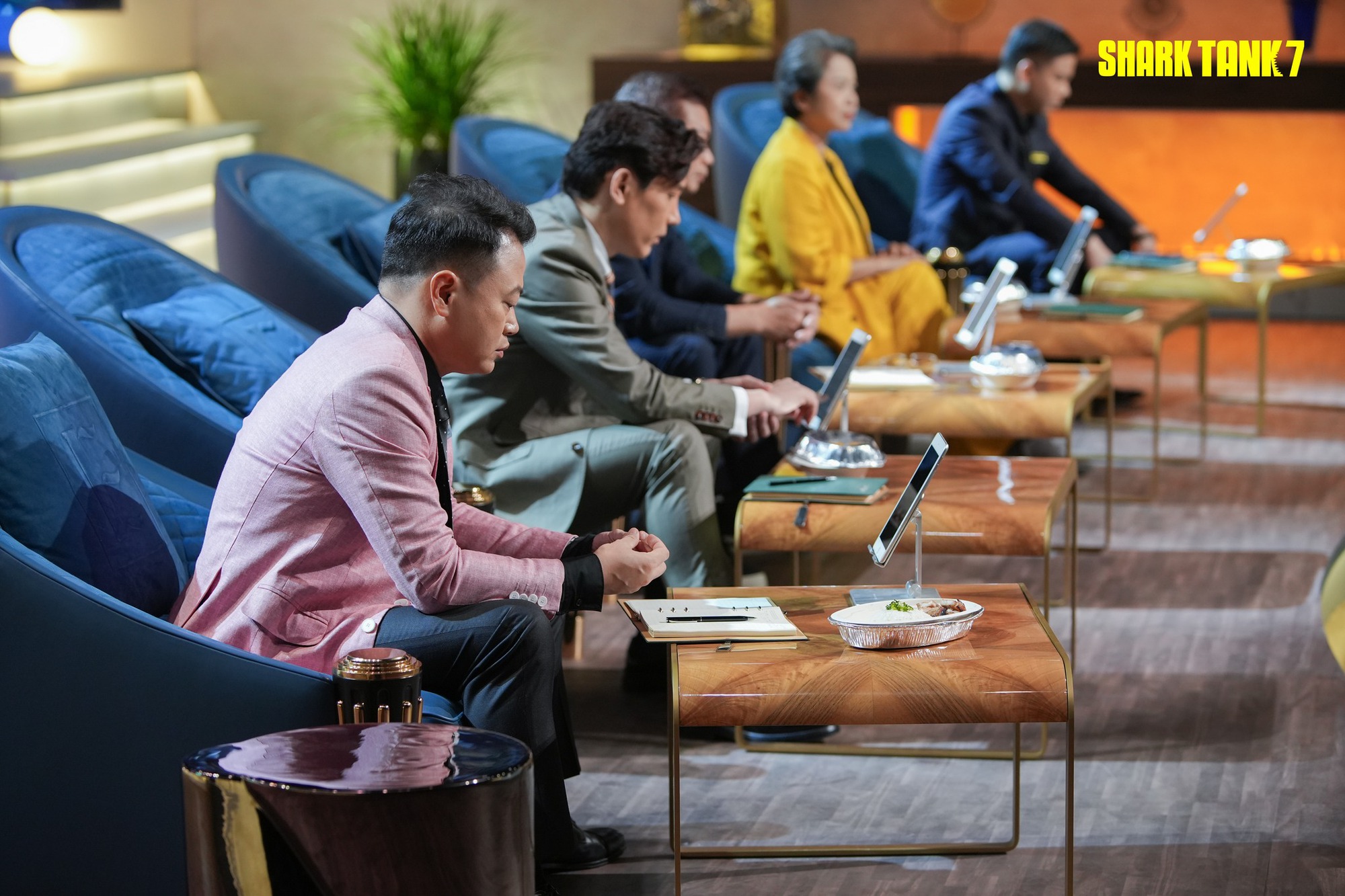
Shark Hung, on the other hand, acknowledged the naivety of the business model but praised the quality of the product. He offered an investment of 1 billion VND for 45% of the company’s shares and agreed to consider an additional investment of 4 billion VND for the next branch, contingent on the performance of the current branch. In addition to capital, Shark Hung committed to providing mentorship on business models and optimization strategies.
Shark Minh Beta, impressed with the modernization of traditional dishes and the aesthetic appeal of the products, also expressed interest in partnering with the startup. He offered an investment of 1.5 billion VND for 49% of the shares, with the remaining 3.5 billion VND contingent on actual business performance.
After careful consideration, Kim Vinh accepted Shark Minh Beta’s offer, citing admiration for the Shark’s entrepreneurial journey and knowledge. This marked a successful investment deal for Double C.
Sealing a deal worth nearly 50 billion VND with Aplus Home, Shark Hung denies the “golden age” of Shark Binh: When rice and high-quality grains are scarce, affordable housing will take the lead.
Furthermore, Shark Hung believes that Aplus’s model is addressing the “pain points” of the real estate market and generating cash flow for investors.
Shark Hùng Anh’s Tết Bonus: No More Gifting Female Employees with Scooters, They All Drive Cars Now!
In 2021, Shark Hùng Anh amazed many people by giving away a 1 billion VND car and 6 Honda SH motorcycles to his employees. This news came as a surprise, especially considering that it was during the time when the COVID-19 pandemic was starting to escalate, causing significant impacts on numerous businesses.
Startup Raising $1 Million on Shark Tank Season 6: 40% Surge in Sales, Securing Placement in 4 Hospitals and 4 Drugstore Chains
“When running a business, we are no longer ourselves. If you decide to start up, you must live a different life,” Founder Tracy Bee Le Ngoc Thu Trang demonstrates a strong personality that convinced Shark Hung Anh to commit to a $1 million investment, despite initially only asking for $500,000.

